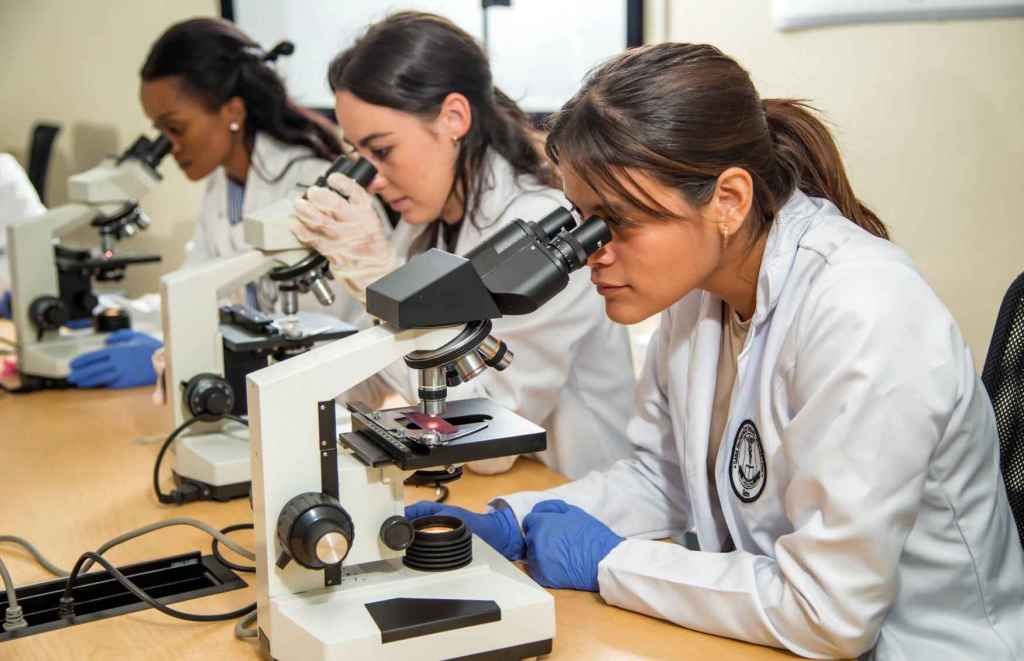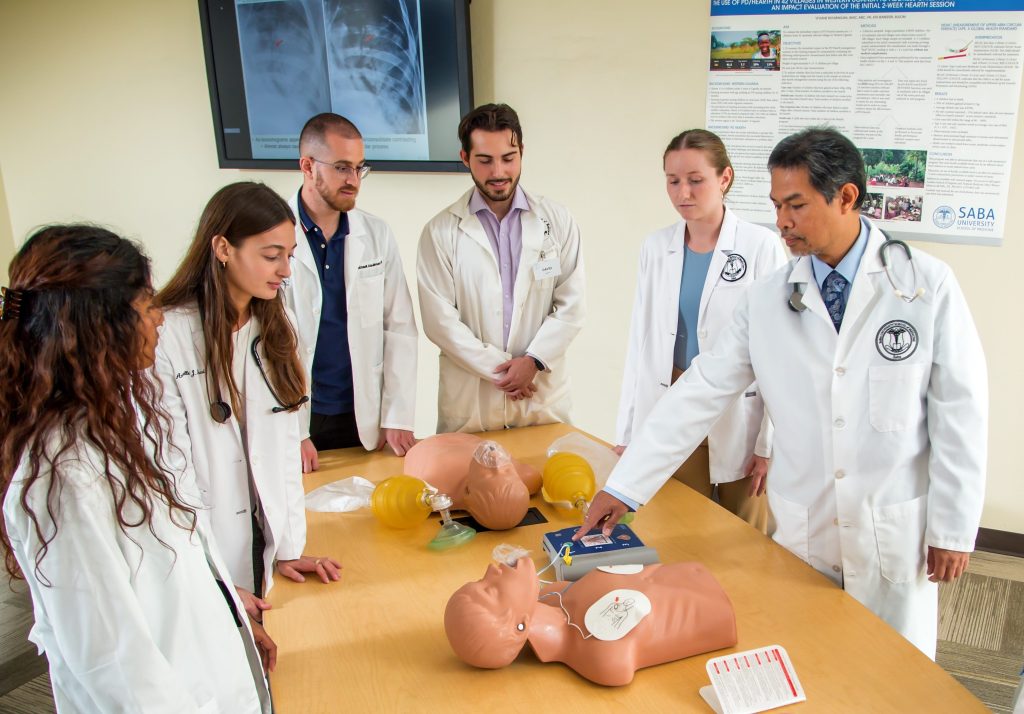
Medical school requirements you need to know in 2025
Learn about medical school admissions and personal requirements for aspiring physicians.
Last updated: April 4, 2025.
The medical field is one of the most competitive professional domains in the world. The amount of aspiring physicians far exceeds the total number of medical seats or colleges.
According to the Association of American Medical Colleges (AAMC), the average acceptance rate of students into medical colleges in the U.S. is 41.9%. This is due in part to the list of medical school requirements being quite stringent and extensive for most institutions.
Therefore, it’s important to be aware of the common medical school requirements beforehand so that you can enhance your applicant profile.
What Are the Most Common Medical School Requirements?
While admissions criteria will certainly differ among schools, here are some common medical school admission requirements:
Undergraduate degree in a relevant major
A Doctor of Medicine or MD program is a postgraduate program, therefore, an undergraduate or bachelor’s degree is typically required to apply. Your undergraduate major can be an important factor in your medical school application. While some schools prioritize students with relevant majors in biology or pre-medicine, others consider students with non-science degrees if students have completed the necessary science-based coursework.
Undergraduate Grade Point Average (GPA)
Your GPA score can be a significant factor for medical school acceptance. Many medical schools have minimum standards for GPA scores to ensure that their applicants have established academic skills. GPA scores will also impact your ability to secure financial support in the form of academic merit-based scholarships.
Prerequisite courses
Medical school curricula generally include a large number of medical and biological subjects that are covered in-depth. Therefore, students are expected to have preliminary knowledge in at least some of the subjects, known as medical school prerequisites.
Medical school admission requirements include prerequisite coursework that can differ between medical schools. Here are the most common medical school prerequisites:
- One year of general biology
- One year of general chemistry
- One year of organic chemistry
- One year of English
MCAT results
The Medical College Admission Test (MCAT) is a standardized medical school entrance examination conducted by the AAMC. The exam evaluates your knowledge of medicine as well as your problem-solving and critical thinking skills.
At Saba University School of Medicine, U.S. students must submit their MCAT scores in order to apply. All other applicants are not required to submit MCAT scores, although they are still encouraged to do so.
Research experience
While it is possible to get accepted into medical school without a research background, your acceptance probability increases when you can demonstrate research experience.
You should be able to demonstrate that your previous research has yielded significant results, and that you can apply what you learned throughout medical school.
Healthcare experience
Previous clinical and volunteer experience can help demonstrate that you are comfortable in a healthcare setting, have certain medical knowledge and skills, are passionate about medicine, and are committed to community care.
Most colleges require at least 50 hours of healthcare-related experience, including shadowing physicians, educating underserved communities, volunteering in hospices and care homes, working as an EMT, etc.
Letters of recommendation
Letters of recommendation are another mighty bow in your quiver that can dramatically improve your chances of acceptance. These letters act as a validation of your skills and your character for the selection committee from reputable sources, and are an essential part of the medical school application requirements.
At SUSOM, applicants must include at least two letters of recommendation with their medical school application, from both a professional acquaintance and an academic supervisor.
TOEFL or IELTS score
For schools that use English as the medium of instruction, applicants whose primary language is not English may need to demonstrate that they are comfortable with the language. This helps ensure that they can follow classroom and lab-based instruction, absorb written material, and communicate effectively with classmates and faculty.
Medical schools generally accept valid English language proficiency exam results from TOEFL or IELTS.
Personal statement
Another step in the medical school application checklist is the personal statement, which offers the chance to showcase your passion and drive to study medicine. A well-written personal statement can help make your application stand out and highlight your written communication skills.
Explaining your unique journey into medicine and connecting your personal experiences to your motivation to pursue a medical career can make your personal statement memorable. It is also essential to tailor your personal statement to highlight why you are a good fit for a particular medical program.
Please remember to closely follow word count requirements. At SUSOM, the required personal statement can not be longer than 500 words.



What Kind of Skills Do Medical Schools Expect From Their Candidates?
Most medical schools expect applicants to have relevant skills that can help them sustain a fast-paced academic life. AAMC has identified the following 15 competencies or skills that should be present in all medical school applicants.
- Service orientation
- Social skills
- Teamwork
- Cultural competence
- Oral communication skills
- Ethical responsibility
- Resilience and adaptability
- Reliability and dependability
- Capacity for continuous improvement
- Written communication skills
- Spirit of scientific inquiry
- Quantitative reasoning
- Critical thinking
- Applied knowledge of human behavior
- Comprehensive knowledge of different living systems
At SUSOM, these qualities can be divided into five key areas of required competency:
- Observation
- Communication
- Motor
- Intellectual-conceptual
- Behavioural and social
Conclusion
Now that you know what is required in order to gain entry to medical school, it is time to consider what school you’d like to apply to.
At Saba University School of Medicine, located on the island of Saba in the Caribbean, students achieve academic and personal success in our 10-semester MD program. Thanks to our dedicated faculty, individualized support and extensive student services, they develop the knowledge and skills they need to progress successfully through Basic Science. They then transition to clinical rotations in the U.S. (core and electives) and Canada (select electives), before securing residency placements at very high rates.
To learn more about how we can help you achieve your goals, explore our website and check out this video testimonial from an MD program student:
Then reach out with any questions or start your application today!
FAQs About Medical School Admissions
Passing the MCAT is one of the main SUSOM medical school admission requirements for U.S. students. Most applicants take the MCAT during their undergraduate studies between April and September of the year before they plan to start medical school. Students should spend three to six months preparing for the MCAT. SUSOM offers start dates in January, May and September each year, so you’re able to choose a start date that best aligns with your MCAT preparation efforts.
At SUSOM, we consider applications holistically and go beyond simply looking at MCAT or GPA scores when considering applicants. There is no minimum MCAT score in order to submit an application, so we encourage all aspiring physicians to apply, as long as they meet our admissions requirements.
Paid medical employment is not one of the undergraduate requirements for medical school admission. However, direct healthcare experience, through paid work, internships, volunteering, or shadowing, demonstrates your knowledge and abilities, interest in the medical field, and determination to pursue a career as a practicing physician. 50 hours of healthcare-related experience is required in order to apply, but it does not have to be paid experience.
If you follow the traditional medical career pathway, you will likely take the MCAT between the ages of 21-23 during your undergraduate studies. However, there is no age limit on those who can take the MCAT, with non-traditional medical school applicants taking the MCAT at a wide range of ages.
Get in touch for more information